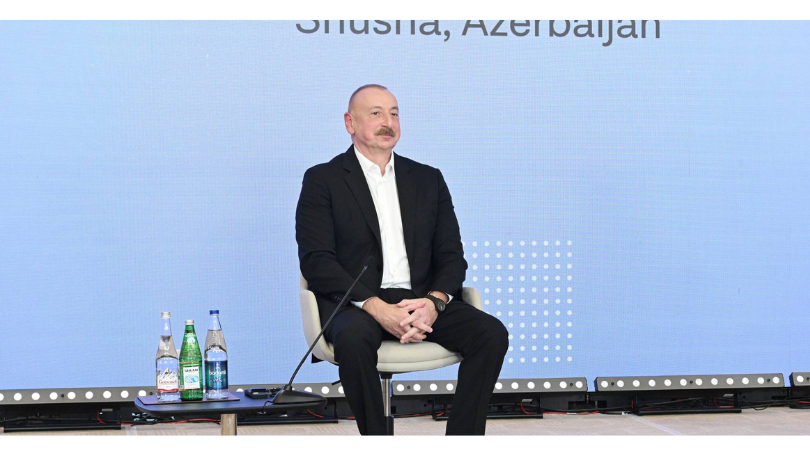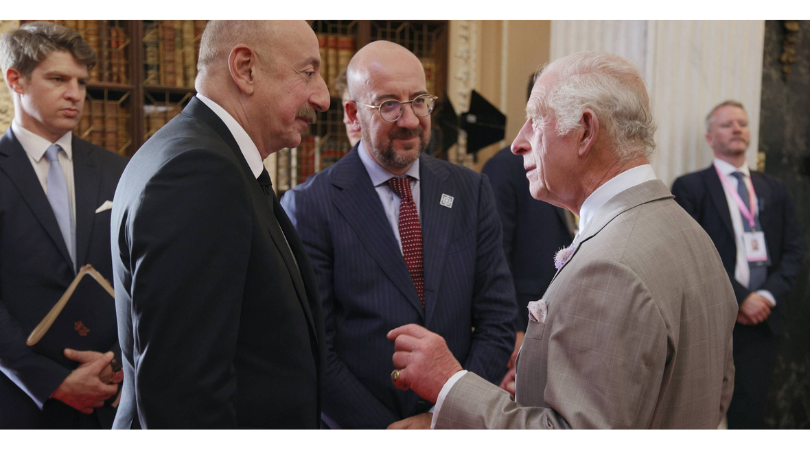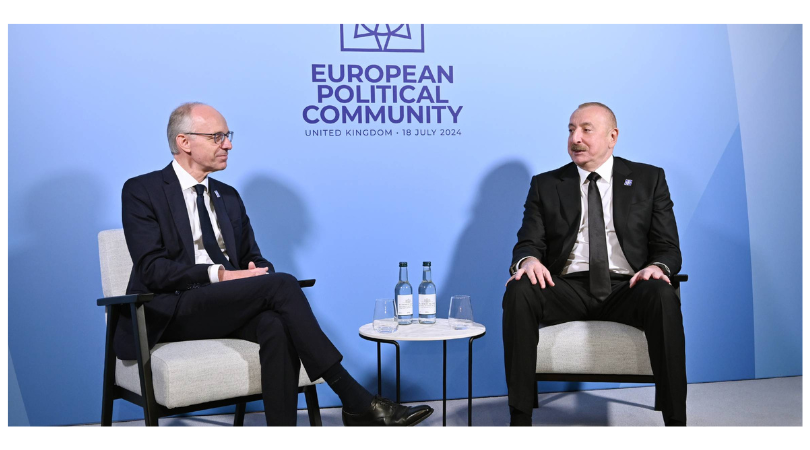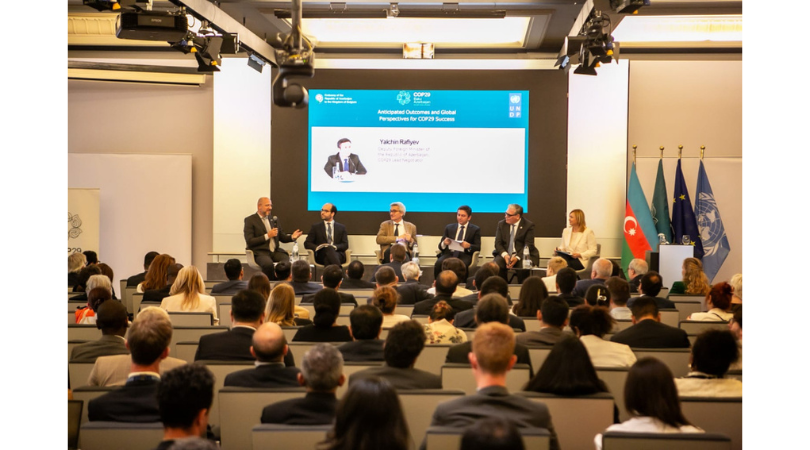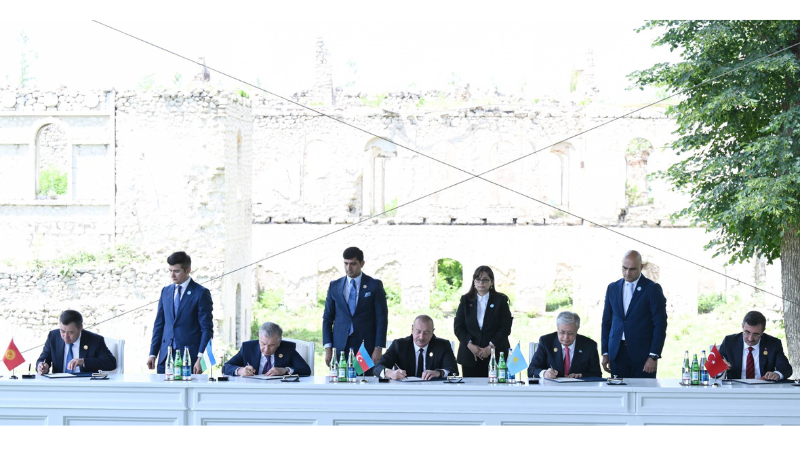The games are an opportunity for Azerbaijan to be more engaged with Europe
SPECIAL REPORT / External relations are very important for Azerbaijan, and the European Games open another door to Europe, Sevinj Hasanova, Deputy Minister of Economy and Industry of Azerbaijan, told EurActiv in an exclusive interview.
Sevinj Telman Hasanova was appointed Deputy Minister of Economy and Industry in 2014. She began her career serving in the Ministry of Finance of Azerbaijan Republic between 1993 and 2006.
What do the Baku 2015 European games mean for your country?
The first European games in my opinion are in my opinion important not only for Azerbaijan, but they are important for Europe. We are really proud that the first European Games will take place in Azerbaijan. To your question – what does it mean to our country? Azerbaijan is not a big country, it has some 10 million people, and we are an open economy. The external relations are very important for our country, and the European Games open another door to Europe. They are another opportunity for us to be more engaged with the European countries.
Azerbaijan is aiming to become a tourism centre as well. Tourism is becoming an ever larger sector of our economy. For its development, spreading information about the country is very important. The games will be an opportunity to show more of Azerbaijan, of our beautiful country, to show what we have, who we are, our culture, and our history, to open up more.
A first impression of Baku is that a lot of constructionis taking place. There is a feeling of growth. Isn’t the wealth of the country too dependent on the piece of oil?
Your assessment that our economy is growing is correct. Our economy is of course oil-dependent, we have substantial reserves, and we try to use them in the most efficient way. From early oil revenue windfall, we have established a strategy which brings this revenue not only for [the present population], but also to preserve it for future generations as well. In 1999, we established a sovereign oil fund. And we have accumulated enough reserve to shelter us from developments such as the fall of oil prices since the end of last year.
Of course, the fall of oil prices influences our revenues, our construction speed, our investment volumes. The diversification of our economy helps us [through] difficult times. As you have seen, construction is going on, but this is not only government construction. Private construction is going on as well, often with foreign investment as well. This is also because we paid attention to the business environment. We were among the top business performers in 2009. We are the most competitive country among the Community of Independent Countries (CIS) over the last six years. That’s according to World Economic Forum reports. And we are continuing our work in improving the business environment, the competitiveness of the country. We have formulated our vision for the future, in the document called Azerbaijan 2020 – Vision for the Future. According to this strategic document, we will continue to diversify our economy, and develop our competitive sectors, [including] agriculture, industry, tourism.
We are also paying attention to alternative energy, notwithstanding that we are rich in traditional energy. But we realise that we can gain in that area, as well.
I was listening to your president, Ilham Aliev, who said on 18 May, at the World Forum on Intercultural Dialogue, that Azerbaijan attaches a lot of importance to education and that 100% of its population is literate. How important is human capital for the country’s development? It is an important asset for investors?
Of course, investors need resources, natural or climatic, they need financial capital. But the major thing they need is human capital. Human capital has traditionally been high quality in Azerbaijan. This is probably due to our historic development. I was at the same event. Te President also mentioned that the first Islamic democracy was built in our country in 1918, and that at that time, our women received voting rights. That’s much earlier than in many European countries. In every family you can see the desire to learn, the desire to get higher education, the desire from the parent’s side to give a better education for their children. Indeed, the degree of literacy is quite high in Azerbaijan. That could be something that came from the Soviet Union, where the attention for literacy was quite big.
I realise that as part of the Soviet legacy, there are also many polluted areas, mostly with oil. What is the country doing at present to address this problem?
Just near the Olympic Stadium, you can see a lake which was very polluted before. It was impossible to stand by the lake even for a few minutes, but now it has been cleaned. This is the kind of attention many polluted areas are receiving. Many areas have been polluted over the decades, and now we need to deal with the problem, and pay more attention to the environment. That’s what we do.
What do you expect in the future of relations with the EU?
The European countries are among are major strategic partners and the development of relations with each and every member of the EU is very important for Azerbaijan. Those countries, we hope, will become destinations for our non-oil economic production. From that perspective, we pay huge attention to our partnership with EU countries, and also from the point of view of getting access to know-how. We are not a country that produces much machinery and equipment, or nanotechnologies. We are in need of such technologies and Europe is the place where such technologies are developing all the time. And our state oil fund is also an investor in the EU.
EurActiv.com
Georgi Gotev

